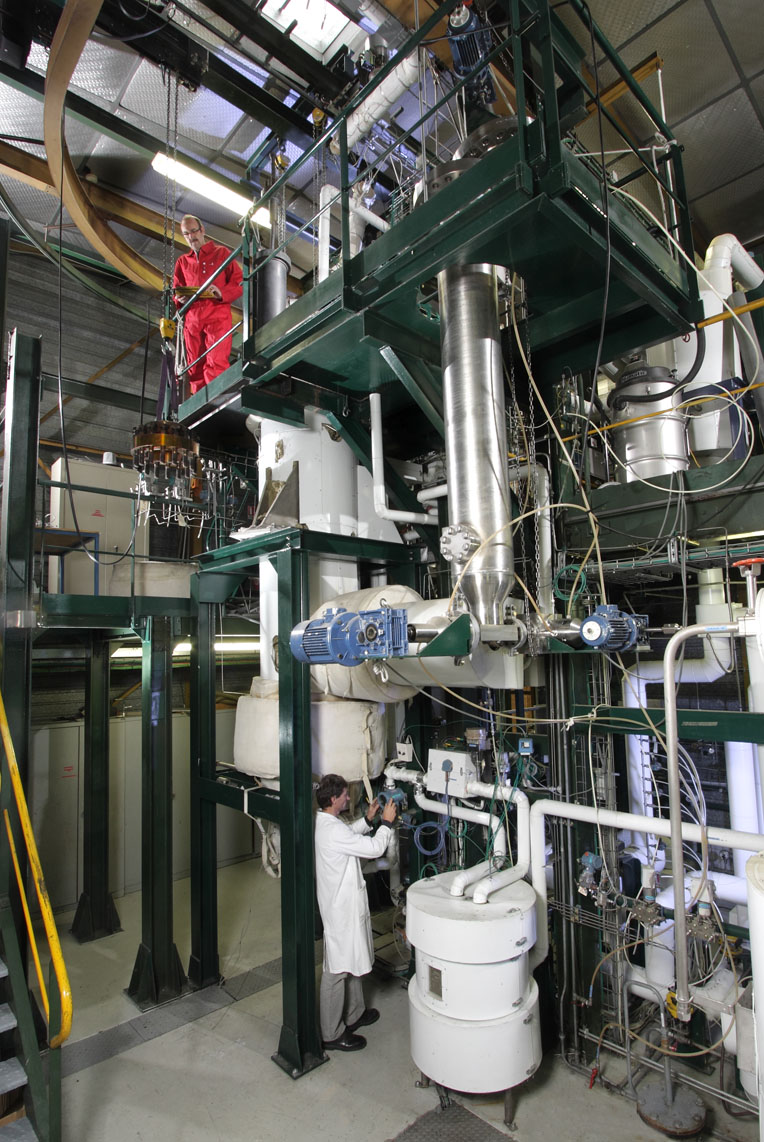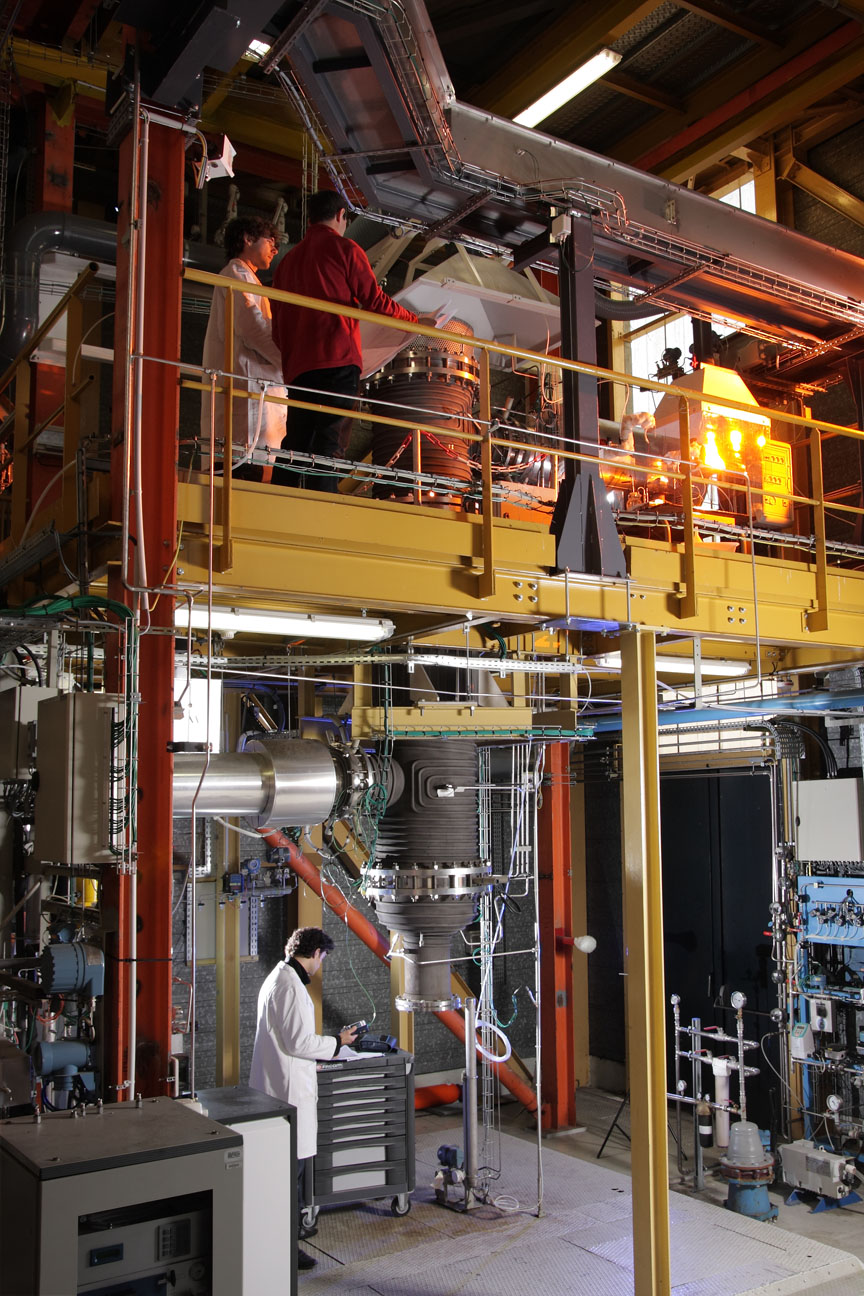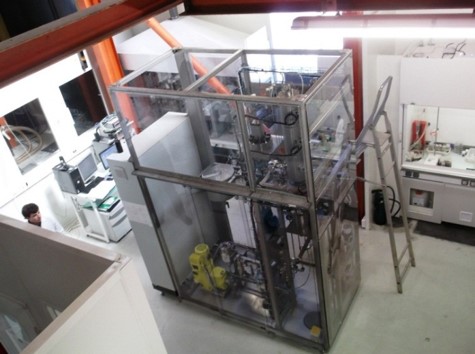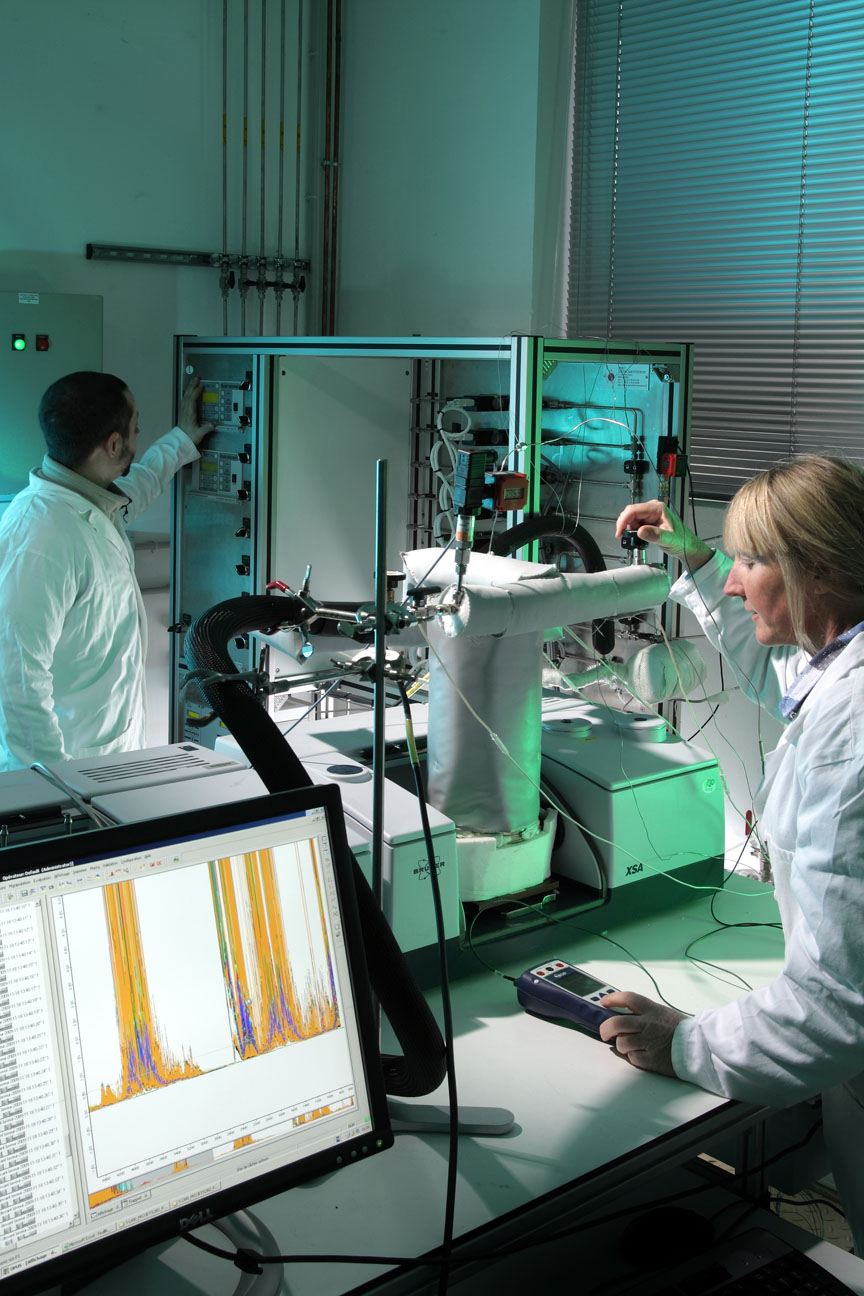Developing energy-efficient and low-carbon technologies to produce energy while eliminating waste, here is the mission of the Laboratory of Thermal Conversion of Bioresources.
LTCB researchers work especially on the development of biomass and waste-to-energy processes as pyrolysis, gasification hydrothermal liquefaction and gasification of conventional biomass (wood, agricultural and forestry residues, microalgae…) but also industrial and municipal waste (refused derived fuels, sewage sludge…) dedicated to the production of heat, power, liquid and gaseous biofuels, and green chemicals.
 |  |
| High temperature fluidized bed used for the gasification of various resources (up to 1000°C, 15 bar, 1-5 kg/h) | Thermal cracking reactor used for the destruction of tars in the syngas (1500°C) |
The lab performs basic particle-scale studies as well as studies applied on experimental devices, prototypes and pilots up to 100 kg/h, the results of which will be used for extrapolation at demonstration and industrial scales. It has great expertise in the realization of physical and chemical measurements, understanding and modelling of the reaction mechanisms of pyrolysis, liquefaction and gasification, understanding the behaviour of inorganic species and their interactions with bed and wall materials, the design of innovative technological systems, the operation of experimental pilots and the technical and economic evaluation of those processes.
 |  |
Hydrothermal liquefaction continuous (200-350°C, 100-200 bar, 2 l/h) | Supercritical water gasification continuous pilot (400-700°C, 300 bar, 1-10 l/h) |
In 2017, the team includes 18 people, mainly based in Grenoble.
 Hydrothermal oil made from microalgae
 |  |
| Pyrolysis oil made from wood powder (aqueous and organic phases) | On-line tar analysis using FTIR |